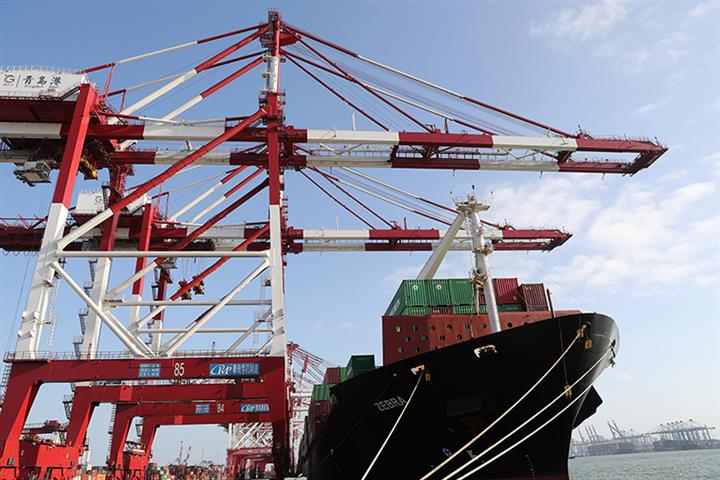 World’s Biggest Free Trade Pact to Kick Off Tomorrow
World’s Biggest Free Trade Pact to Kick Off Tomorrow(Yicai Global) Dec. 31 -- The Regional Comprehensive Economic Partnership agreement, the world’s largest free trade deal signed by 15 member states in the Asia-Pacific region in November last year, will come into effect on the first day of 2022, China’s Ministry of Commerce said yesterday.
Ten member states, namely China, Japan, Australia, New Zealand, Vietnam, Brunei, Cambodia, Laos, Singapore and Thailand, are already poised to take part in the world’s biggest open trading bloc. South Korea will join from Feb. 1 next year and four other member states have yet to ratify the agreement. Together they account for around 30 percent of the world’s gross domestic product and population.
Firms and consumers in China and other countries in the area will enjoy concrete benefits once the pact comes into force, Ministry spokesperson Gao Feng said. More than 65 percent of China’s trade duties with the Association of South-East Asian Nations, Australia and New Zealand are expected to immediately fall to zero. And tariffs will be eventually waived for 85 percent of Japanese exports to China and 88 percent of Chinese exports to Japan.
China’s imports and exports with the 14 other member states accounted for 31 percent of its foreign trade in the first 11 months at CNY10.96 trillion (USD1.7 trillion), according to customs’ data.
RCEP members have pledged to open up over 100 service sectors, including finance, telecoms, transportation and tourism, and have promised the full conversion of negative lists, which restrict foreign investment in certain sectors, within six years of entering the bloc. There will be more opportunities in cross-border e-commerce, internet finance, e-education, online medical consultations and online transactions.
All raw materials originating from RECP member countries used by other member nations in production will be deemed as locally sourced, making it easier for members to meet the threshold for tariff preferences by increasing their ratio of locally sourced material. This will help minimize costs, optimize trade efficiency and strengthen industrial supply chain cooperation within the region, Gao said.
Editor: Kim Taylor